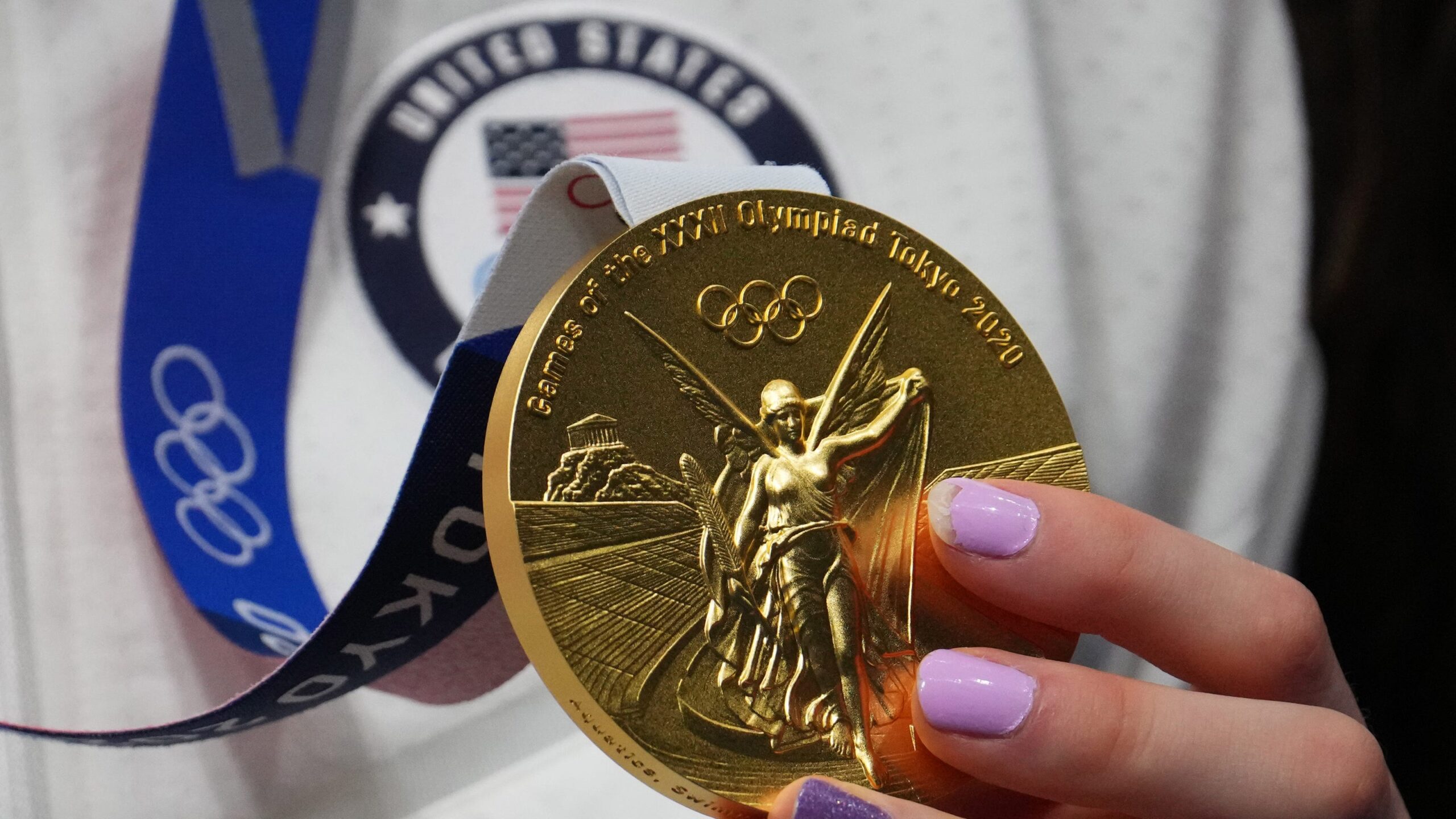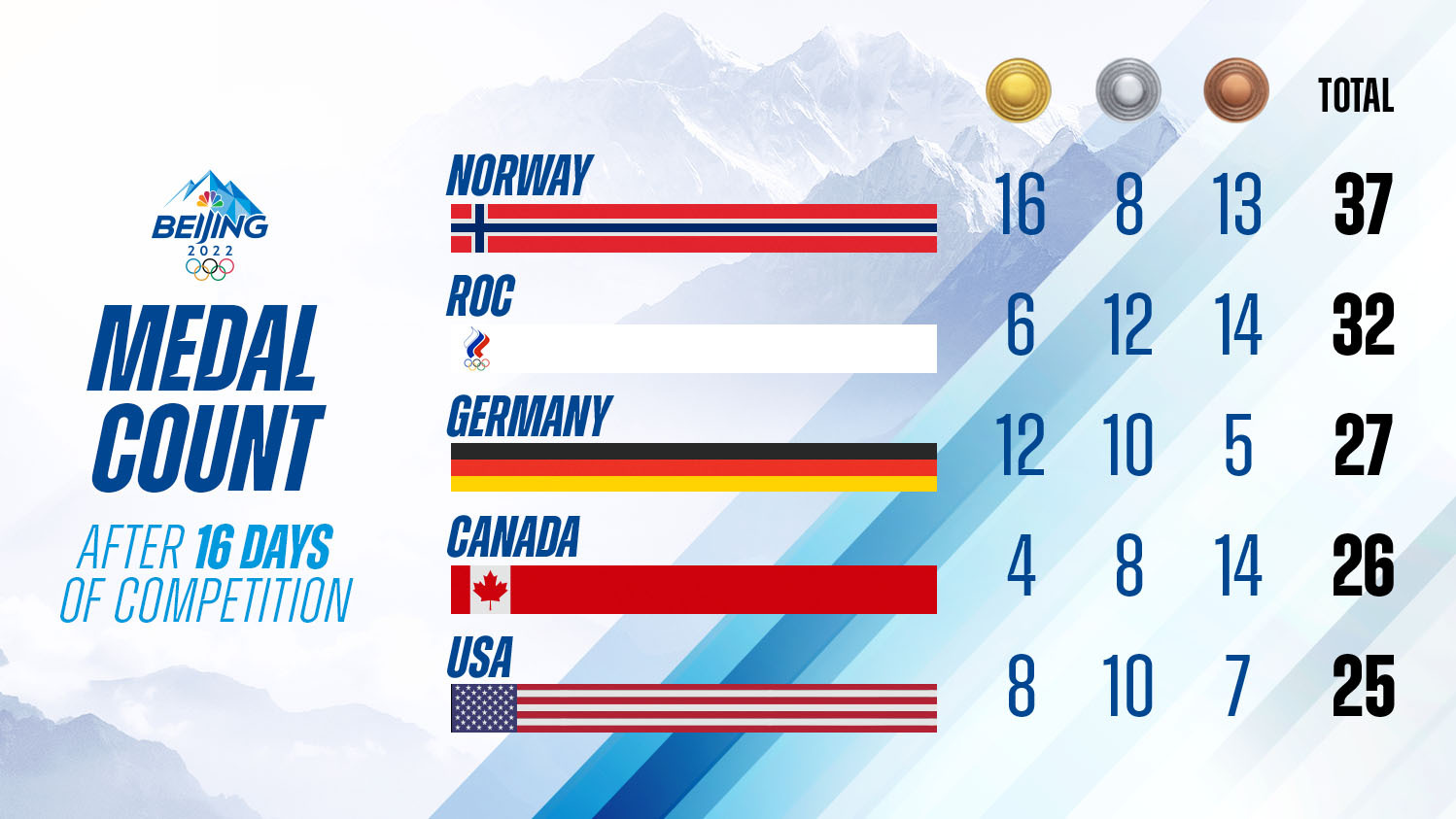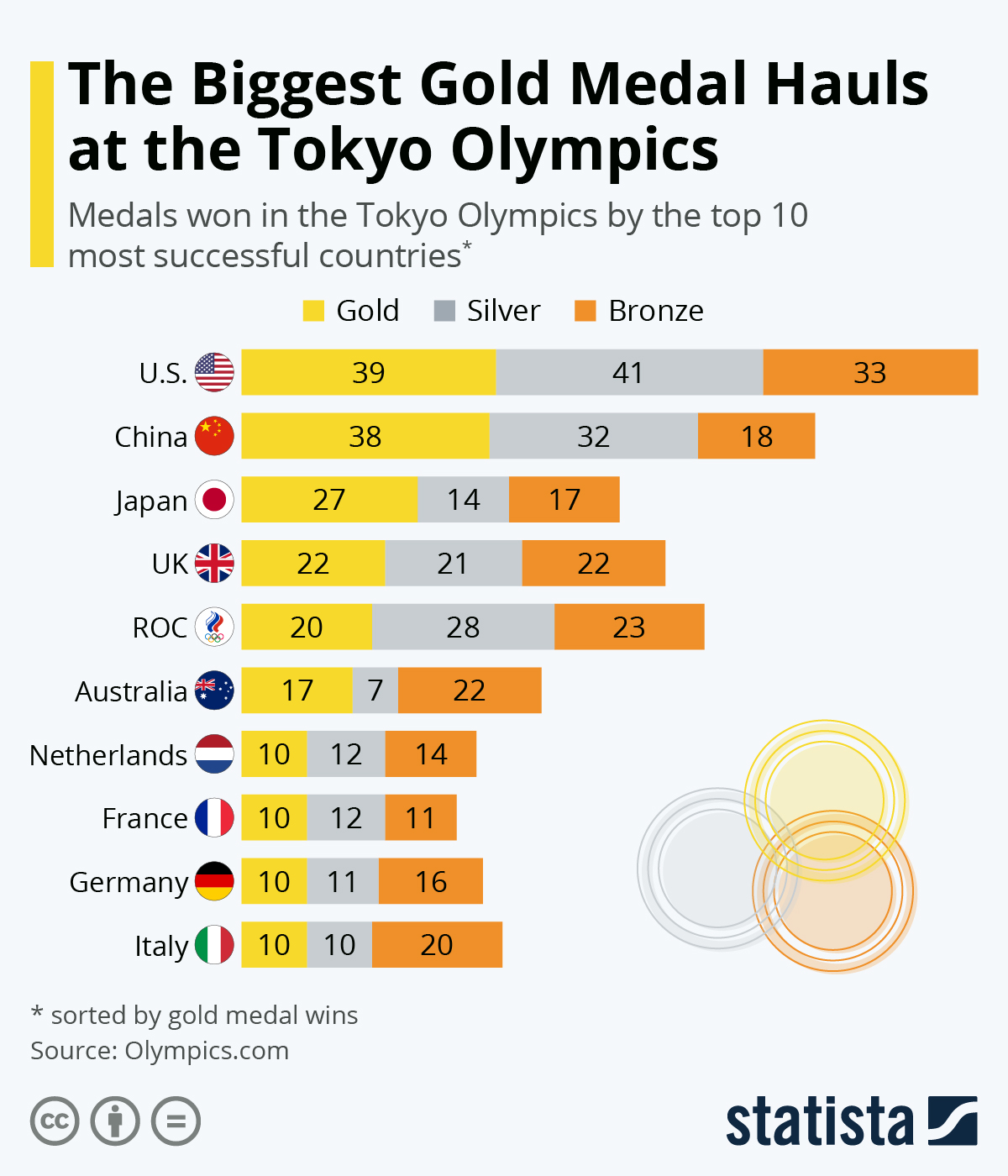There's something truly captivating about the Olympic Games, isn't there? That, feeling of global unity and incredible athletic feats just grabs your attention. And, you know, at the heart of all that excitement often sits the very fascinating olympic medal count total, a sort of scoreboard that really tells a story of national pride and individual triumphs.
It's more than just numbers, you see; it's a way to keep tabs on who's shining brightest on the world stage. For instance, with Paris 2024 recently showcasing some absolutely unforgettable moments, following the official list of medal winners and results by sport became a daily ritual for many. It's really quite something, how people get invested.
You might be wondering, how does this grand tally come together, or what does it truly mean for the countries involved? Well, we're going to take a closer look at what makes the olympic medal count total such a compelling part of the Games, exploring how it works and what we can learn from it. It's honestly a pretty big deal, this whole medal count business.
Table of Contents
- What is the Olympic Medal Count Total?
- Following the Olympic Medal Count
- Key Aspects of Olympic Performance
- Historical Context and Evolution
- Paris 2024 Highlights and Beyond
- Frequently Asked Questions
- Keeping Up with Olympic Glory
What is the Olympic Medal Count Total?
When we talk about the olympic medal count total, we're really looking at a summary of how many gold, silver, and bronze medals each participating country has managed to win during a specific Olympic Games. It’s a way, you know, to quickly grasp which nations have had the most success in the various competitions. This tally, it's pretty much a central feature of how people follow the Games.
Every single event, from the lightning-fast sprints to the intricate gymnastics routines, hands out three medals. There’s one for the person or team who gets first place, which is gold. Then, you have silver for second place, and bronze for third. So, in a way, every single win adds to a country's overall count, and that's how it builds up.
The total count isn't just a simple addition of all medals. It's often presented in a specific order, which can actually change how you perceive a country's standing. Some tables prioritize the number of gold medals, while others might just list by the sheer total number of all medals combined. It’s a bit interesting, how that small difference can shift the picture, isn't it?
How Medals are Awarded
Medals are given out after each event, whether it's a single athlete performing or a whole team. For instance, if you watch the Men's 100m final in athletics, the top three runners each get a medal. It’s a moment of great pride, not just for the individual, but for their country too, you see.
The process is really quite formal and steeped in tradition. After the competition wraps up, the medal winners stand on a podium, and their national anthems play for the gold medalist. It's a very moving ceremony, and, well, it's what every athlete dreams of, isn't it? To stand there and represent their nation.
With more than 400 events across the summer and winter Games, there are a lot of medals to go around, actually. Each one represents countless hours of practice, dedication, and pushing human limits. So, when you see a country's olympic medal count total go up, it’s a reflection of all that hard work and sacrifice, really.
The Significance of the Count
The olympic medal count total holds a lot of meaning for different people. For nations, it can be a source of immense national pride and a measure of their athletic prowess on the global stage. It's a way, you know, for countries to show their strength and capabilities in sports.
For athletes, contributing to their country's medal count is a huge honor. It’s not just about their personal victory; it’s about bringing glory to their homeland. And, you know, that adds another layer of intensity to the competition, making every race and every jump even more exciting.
Beyond the immediate glory, the medal count can also influence sports funding and development within a country. A strong performance can mean more investment in youth programs and training facilities, which, you know, could lead to even more success down the road. It’s a cycle, in a way, of achievement and support.
Following the Olympic Medal Count
Keeping up with the olympic medal count total is a popular activity during the Games. People check it daily, sometimes even hourly, to see how their favorite countries are doing. It’s a bit like following a very exciting live leaderboard, isn't it?
The official sources are always the best place to get the most accurate information. You want to be sure you're seeing the real numbers, after all. There are many ways to stay updated, whether you're at home or on the go. It’s pretty convenient, really, how accessible this information has become.
Accessing breaking sports news, watching video highlights, and reliving the best Olympic moments are all part of the experience. And, you know, a big part of that is keeping an eye on that medal table. It really adds to the excitement of the whole event.
Where to Find Official Results
The official website of the Olympics, olympics.com, is the go-to place for all official results and medal counts. You can find the official medal table of the Summer Olympic Games in Paris there, for example. It’s a very reliable source, naturally.
This site provides an alphabetical list of medals and celebrates the achievements of the finest athletes. It’s a place where you can discover all the Olympic sports from their complete list and read the latest news and watch videos from your favorite discipline. So, you know, it’s pretty comprehensive.
Beyond the main website, many reputable sports news outlets also provide up-to-the-minute updates on the olympic medal count total. They often have interactive tables that let you sort by gold, silver, or total medals, which is quite handy. It’s really easy to stay informed, these days.
Understanding the Medal Table
The medal table, which shows the olympic medal count total, typically lists countries by their name, followed by columns for gold, silver, bronze, and then a total. As a matter of fact, some tables might even have a column for ranking, which changes depending on how they sort the data.
The most common way to rank countries is by the number of gold medals won. If there's a tie in gold medals, then the number of silver medals breaks the tie. If still tied, then bronze medals are used. This method, you know, puts a premium on winning the top prize.
However, some organizations or media outlets might just rank by the sheer total number of medals, regardless of color. This can sometimes lead to different rankings, so it's always good to check how the table you're looking at is organized. It's a subtle difference, but it matters, really.
Key Aspects of Olympic Performance
The olympic medal count total isn't just about who won; it also reflects broader trends and values within the Games. For instance, the recent Paris 2024 Games brought a very important aspect to the forefront. It’s about more than just the athletic contests, you see.
The Games are a reflection of global participation, with more than 200 countries taking part in a vast array of events. This widespread involvement makes the medal count a truly global snapshot of athletic excellence. It's pretty amazing, how many nations come together.
From the intensity of track and field events to the grace of gymnastics, the strength of weightlifting, and the precision of archery, every sport adds to the rich tapestry of the Olympics. And, you know, each of these disciplines contributes to the overall medal tally.
Gender Parity in Paris 2024
One truly remarkable achievement of the Paris 2024 Olympic Games was its commitment to gender parity. In line with its slogan, ‘Games Wide Open’, Paris 2024 was the first Olympic Games in history to achieve gender parity on the field of play. That's a pretty big step, actually.
Of the 10,500 quotas available to athletes, the distribution between male and female participants was equal. This means that women had just as many opportunities to compete for medals as men, which is a significant milestone in the history of the Games. It’s a very positive development, you know.
This focus on equal opportunity means that the olympic medal count total from Paris 2024 is a more balanced representation of athletic talent across all genders. It really shows how the Games are evolving to be more inclusive and fair. It's something to celebrate, for sure.
The Breadth of Olympic Sports
The sheer variety of Olympic sports is quite astonishing, and it means medals are distributed across a wide range of athletic abilities. You can discover all the Olympic sports from the complete list at olympics.com, and read the latest news and watch videos from your favorite summer Olympic sport discipline. It's pretty cool, how many different things there are.
From team sports like basketball and soccer to individual pursuits like swimming and fencing, each discipline has its own set of rules and challenges. This diversity means that countries with different sporting strengths can all contribute to their olympic medal count total. So, you know, it’s not just about one type of athlete.
The inclusion of new sports or changes to existing ones can also impact how medals are distributed in any given Games. This constant evolution keeps the Olympics fresh and exciting, and, well, it also means the medal count is always a dynamic thing to follow.
Historical Context and Evolution
To truly appreciate the olympic medal count total today, it's helpful to look back at the Games' long and fascinating history. The modern Olympic Games, or Jeux Olympiques, are the world's preeminent international sporting events, but their roots go way back. It's a pretty rich history, actually.
The Olympic Games are an athletic festival that originated in ancient Greece and were revived in the late 19th century. This revival brought back the spirit of competition and global camaraderie that we see today. It’s quite amazing, how something so old can still feel so relevant.
Over the years, the Games have grown significantly, both in terms of participating countries and the number of events. This growth has naturally led to an increase in the total number of medals awarded, making the competition for the top spots even more intense. It’s definitely expanded quite a bit.
From Ancient Greece to Modern Games
The ancient Olympics were very different from what we see today, of course. They were held in Olympia, Greece, and featured a much smaller range of events, primarily focused on running, wrestling, and chariot racing. There weren't, you know, official medal counts in the same way.
The revival of the Games in 1896 by Pierre de Coubertin marked the beginning of the modern era. This is when the concept of international competition and the awarding of medals as we know them today really took shape. It’s fascinating, how a single vision can bring something so grand to life.
Since then, the Games have been held every four years, with only a few interruptions for world wars. Each edition has added to the rich legacy and the cumulative olympic medal count total across history. It’s a continuous story of human endeavor, in a way.
Global Participation and Growth
The growth in global participation is a key factor in the scale of the modern olympic medal count total. With more than 200 countries participating in over 400 events across the Summer and Winter Games, the competition is truly worldwide. It's a massive undertaking, really.
This widespread involvement means that athletes from every corner of the globe have a chance to compete and earn medals for their nations. It fosters a sense of unity and friendly rivalry that is unique to the Olympics. And, you know, it makes the medal table a true reflection of global athletic talent.
The official home of the IOC, or International Olympic Committee, provides the latest news and featured stories, information about IOC members, plus Olympic principles, values, and legacy. These elements are what underpin the global nature of the Games and, by extension, the medal count. You can always learn more about the spirit of the Games right here on our site.
Paris 2024 Highlights and Beyond
Paris 2024, as the most recent Summer Games, provided a fresh set of stories and, naturally, a new update to the olympic medal count total. It was a Games that emphasized innovation and inclusivity, which really added to its character. It’s always exciting to see what each new host city brings.
The official list of medal winners and results by sport at the Paris 2024 Olympic Games is a testament to the incredible performances seen there. From the highly anticipated Men's 100m final in athletics to the dramatic finishes in other disciplines, every event contributed to the overall tally. It was quite a spectacle, honestly.
Looking ahead, the next Olympic Games will continue this tradition, bringing new athletes, new stories, and new additions to the global medal count. The excitement, you know, never really stops when it comes to the Olympics.
Notable Moments
Paris 2024 saw many moments that will surely be remembered for years to come. We’ve compiled the best highlights, including iconic performances in various sports. For example, the intensity of track and field events, the grace of gymnastics, the strength of weightlifting, and the precision of archery all delivered unforgettable competitions. To see even more incredible moments, you might want to check out our dedicated page for Olympic highlights.
These individual and team achievements are what drive the olympic medal count total. Each gold, silver, or bronze medal represents a peak moment for an athlete, often the culmination of a lifetime of training. It’s pretty inspiring, when you think about it.
The stories behind these medals, the struggles, the triumphs, and the sheer determination, are what truly make the Games special. The numbers on the medal table are just a summary of these incredible human stories. They're, you know, just a small part of the bigger picture.
What's Next for the Games
The Olympic cycle keeps moving, with preparations already underway for future Games. Each new host city brings its own flavor and innovations to the event. This ongoing evolution means that the way we experience and follow the olympic medal count total might also change slightly over time. It’s always a bit of a fresh start.
The principles, values, and legacy of the Olympics, however, remain constant. These ideals guide the Games, ensuring they continue to be a platform for excellence, friendship, and respect. So, you know, even as things change, the core spirit stays the same.
Keeping an eye on future announcements from the IOC and host cities will give you a glimpse into what's next for the world's preeminent international sporting events. The excitement for the next medal count is already building, actually, for many people.
Frequently Asked Questions
How is the Olympic



Detail Author:
- Name : Armando Ferry
- Username : jayde55
- Email : jovany71@hotmail.com
- Birthdate : 1983-04-10
- Address : 8708 Hand Trafficway Apt. 574 Lake Odessa, ND 98135-7986
- Phone : 1-253-914-4245
- Company : Metz-Bogisich
- Job : Automatic Teller Machine Servicer
- Bio : Asperiores modi tempore cumque sint sed. Totam ea sequi ea quod. Nihil voluptatem quos quia nihil error molestiae.
Socials
facebook:
- url : https://facebook.com/xzavier_real
- username : xzavier_real
- bio : Quibusdam quo ab non ut aliquid. Debitis hic et pariatur eum tempore.
- followers : 6670
- following : 2788
tiktok:
- url : https://tiktok.com/@romaguerax
- username : romaguerax
- bio : Sed sequi necessitatibus est. Eos et sunt sint.
- followers : 6166
- following : 2014

